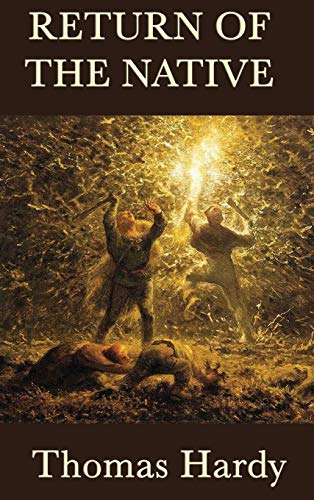-
The Return of the Native
Thomas Hardy
(Independently published, Jan. 17, 2020)A Saturday afternoon in November was approaching the time of twilight, and the vast tract of unenclosed wild known as Egdon Heath embrowned itself moment by moment. Overhead the hollow stretch of whitish cloud shutting out the sky was as a tent which had the whole heath for its floor.The heaven being spread with this pallid screen and the earth with the darkest vegetation, their meeting-line at the horizon was clearly marked. In such contrast the heath wore the appearance of an instalment of night which had taken up its place before its astronomical hour was come: darkness had to a great extent arrived hereon, while day stood distinct in the sky. Looking upwards, a furze-cutter would have been inclined to continue work; looking down, he would have decided to finish his faggot and go home. The distant rims of the world and of the firmament seemed to be a division in time no less than a division in matter. The face of the heath by its mere complexion added half an hour to evening; it could in like manner retard the dawn, sadden noon, anticipate the frowning of storms scarcely generated, and intensify the opacity of a moonless midnight to a cause of shaking and dread.In fact, precisely at this transitional point of its nightly roll into darkness the great and particular glory of the Egdon waste began, and nobody could be said to understand the heath who had not been there at such a time. It could best be felt when it could not clearly be seen, its complete effect and explanation lying in this and the succeeding hours before the next dawn; then, and only then, did it tell its true tale. The spot was, indeed, a near relation of night, and when night showed itself an apparent tendency to gravitate together could be perceived in its shades and the scene. The sombre stretch of rounds and hollows seemed to rise and meet the evening gloom in pure sympathy, the heath exhaling darkness as rapidly as the heavens precipitated it. And so the obscurity in the air and the obscurity in the land closed together in a black fraternization towards which each advanced halfway.The place became full of a watchful intentness now; for when other things sank brooding to sleep the heath appeared slowly to awake and listen. Every night its Titanic form seemed to await something; but it had waited thus, unmoved, during so many centuries, through the crises of so many things, that it could only be imagined to await one last crisis—the final overthrow.- Taken from "The Return of the Native" written by Thomas Hardy
-
The Return of the Native
Thomas Hardy
Paperback (Loki's Publishing, Feb. 25, 2017)The central figure of this novel is the returning "native", Clym Yeobright, and his love for the beautiful but capricious Eustacia Vye. As character after character is driven to self-destruction, the presence of Egdon Heath becomes all-embracing, while Clym becomes a preacher.
-
The Return of the Native
Thomas Hardy
language (, June 27, 2017)The Return of the Native by Thomas Hardy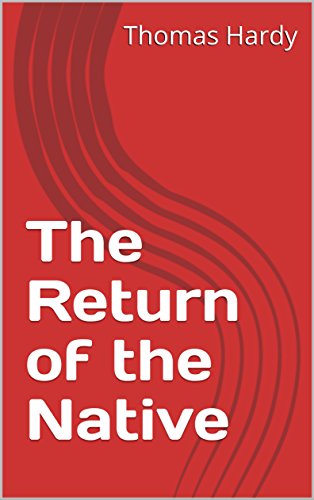
-
The Return of the Native
Thomas Hardy
language (Enhanced Media Publishing, June 19, 2017)Clim Yeobright, tired of city life, returns from Paris to open a school on Egdon Heath and, in spite of the opposition of his mother, marries Eustacia Vye, a passionate, pleasure-loving girl who hopes to persuade him to return to Paris. The Return of the Native was controversial in its day, causing quite a stir when it first appeared in the January-December 1878 issues of the magazine Belgravia, a publication known for its sensationalism. Because of the novel's risqué themes, author Thomas Hardy had difficulty finding a publisher. Today, The Return of the Native is one of Hardy's most popular novels.
-
The Return of the Native
Thomas Hardy
Paperback (CreateSpace Independent Publishing Platform, March 9, 2013)The Return of the Native is a work by Thomas Hardy now brought to you in this new edition of the timeless classic.
-
The Return Of The Native
Thomas Hardy
language (Moorside Press, March 11, 2013)This edition incorporates an original introduction from Moorside Press, including a biography, a critical discussion of Hardy's place in the history of British Literature and a short contextual discussion of the book.Published in 1878 as a serial in the Belgravia magazine, The Return of the Native was Hardy's seventh novel and serves as a tragic episode in the author's Wessex series. The plot concerns the varied fortunes of Eustace Vye, a beautiful but flawed young woman, and Damon Wildeve as they at first fail to live a life together and then subsequently agree to the notion only for fate, in the guise of tragic coincidence, to intervene.The plot has a certain complexity to it that gives it a modern air, notably, for example, leading off with the fortunes of two secondary but important characters who, by the end, provide a suitable epilogue that goes some way to balance to tragic outcomes of the leading protagonists. The novel was not received well at the time due to Eustace's flawed nature and the implicit inclusion of sexual infidelities. It is, however, and remains, one of Hardy's most popular stories.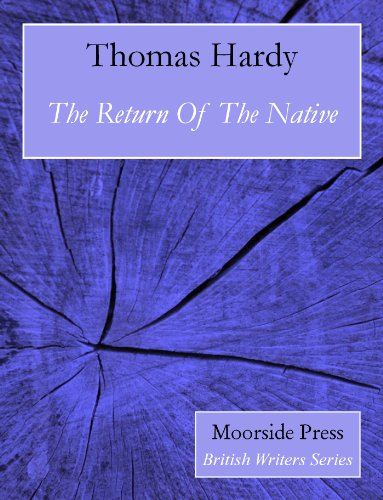
-
The Return of the Native
Thomas Hardy
Paperback (Independently published, Dec. 19, 2019)The Return of the Native is Thomas Hardy's sixth published novel. It first appeared in the magazine Belgravia, a publication known for its sensationalism, and was presented in twelve monthly installments from January to December 1878.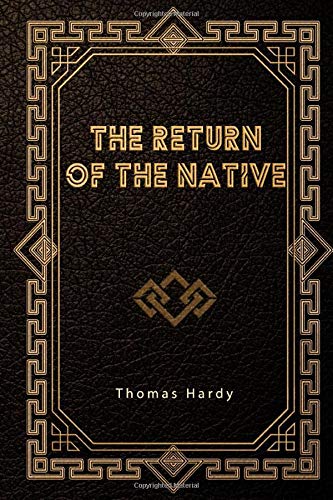
-
The Return of the Native
Thomas Hardy
language (, July 4, 2019)The Return of the Native is Thomas Hardy's sixth published novel. It first appeared in the magazine Belgravia, a publication known for its sensationalism, and was presented in twelve monthly installments from January to December 1878. Because of the novel's controversial themes, Hardy had some difficulty finding a publisher; reviews, however, though somewhat mixed, were generally positive. In the twentieth century, The Return of the Native became one of Hardy's most popular and highly regarded novels.
-
The Return of the Native
Thomas Hardy
Paperback (CreateSpace Independent Publishing Platform, July 12, 2017)The Return of the Native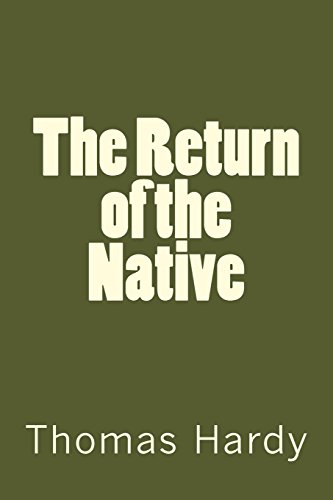
-
The Return of the Native
Thomas Hardy
language (, June 14, 2017)The Return of the Native by Thomas Hardy
-
The Return of the Native
Thomas Hardy
Paperback (Independently published, Nov. 3, 2019)The Return of the Native is Thomas Hardy's sixth published novel. It first appeared in the magazine Belgravia, a publication known for its sensationalism, and was presented in twelve monthly installments from January to December 1878. Because of the novel's controversial themes, Hardy had some difficulty finding a publisher; reviews, however, though somewhat mixed, were generally positive. In the twentieth century, The Return of the Native became one of Hardy's most popular and highly regarded novels.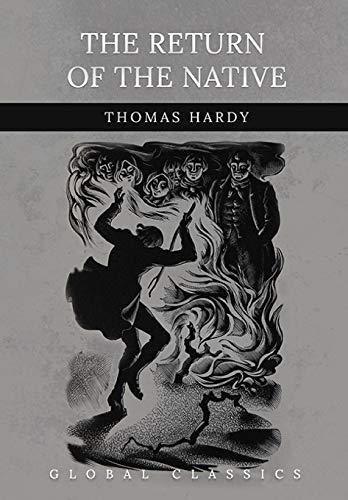
-
Return of the Native
Thomas Hardy
Hardcover (SMK Books, April 3, 2018)The novel takes place entirely in the environs of Egdon Heath, and, with the exception of the epilogue, covers exactly a year and a day. The narrative begins on the evening of Guy Fawkes Night as Diggory Venn drives slowly across the heath, carrying a hidden passenger in the back of his van. When darkness falls, the country folk light bonfires on the surrounding hills, emphasizing-not for the last time-the pagan spirit of the heath and its denizens.